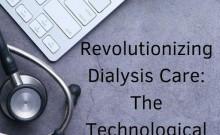British scientists have developed a hand-held device that infuses a gentle stream of regular cold water with ultrasound to turn it into a highly effective cleaning tool. They believe the tool could reduce dependence on traditional detergents and help combat anti-microbial resistance.
The device, known as "Starstream", passes a gentle stream of water through a nozzle that generates ultrasound and bubbles. The oscillating effect of the sound field on the bubbles turns them into micro-scrubbers that can remove dirt and germs from most surfaces. These tiny micro-scrubbers are particularly effective at cleaning inside cracks and crevices, which are difficult for conventional cleaning technologies, according to co-inventor Professor Tim Leighton.
From his lab at the University of Southampton's Institute of Sound and Vibration Research, Leighton said that he and his team found the gas bubbles because they wanted to build a form of micro-scrubber, which can clean without bleach and detergents, and penetrate inside the crevices and the cracks.
"So these gas bubbles underwater; these balls of gas, normally just sit there spherically under water. But if you hit them with a sound field you can make their surfaces ripple. And you get such high sheer and rubbing along the surfaces of these ripples that it can clean very effectively," he added.
The patented technology earned Leighton and co-inventor Dr Peter Birkin, the Royal Society's Brian Mercer Award for Innovation in 2011. This gave them the opportunity to develop their prototype model into the current hairdryer-type design for manual cleaning.
However, Leighton said the technology could easily be fixed on to other devices of varying shapes and sizes. He further said that Starstream's effectiveness without the need for heating or additives has the potential to transform the cleaning sector.
In laboratory-based tests, "Starstream" was able to effectively remove biological contamination from medical instruments and bacterial biofilms that typically cause dental disease. Leighton believes if the technology could be incorporated into the public's hand washing routine then it could prove to be a valuable tool in the fight against antibiotic and anti-microbial resistance.
"Despite all our efforts we haven't been able to change the behavior of people to wash their hands properly. So if we can't change the behavior, we change the water. And our aspiration would be to make that six seconds of washing in cold water without soap - using Starstream- as effective as 20 seconds of warm soapy water. It's an aspiration, we hope to realize it." Leighton said.
The device is in limited commercial production by company Ultrawave Ltd., but Leighton is seeking further investment to miniaturize the current design and make it a viable new tool for health providers and the general public.











